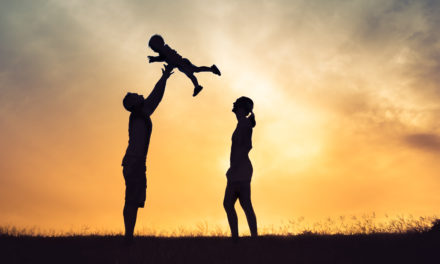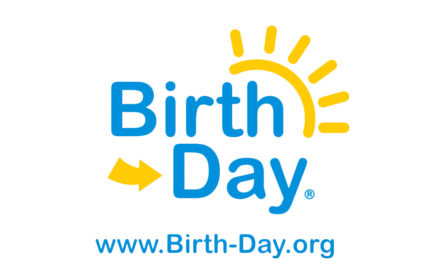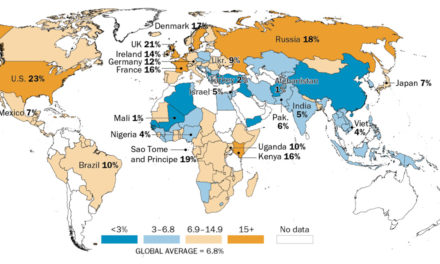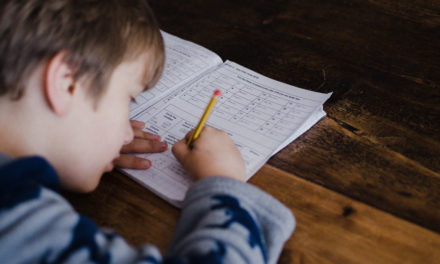A liberal father of two young children, writing over at Slate, says, “There is no shortage of books being used to panic parents into protesting their local schools or libraries,” so he set out to prove to his readers there is no need for such panic. But as he investigated just one of these books, things turned out quite differently for him. He now realizes there is indeed cause for concern, and he explains why.
Aymann Ismail went to his small local public library in New Jersey and asked to check out It’s Perfectly Normal by Robie H. Harris, explaining he’s “been fascinated by this book ever since it became the center of the right-wing push to censor books with sexual themes in the name of protecting the innocence of children.”
Ismail notes the reaction of his local librarian when he asks for the title.
Her eyes widened when she recognized the cover. ‘Do we have this book?’ she asked another librarian. She joined her at the terminal. ‘What is it? A sex-ed book for kids?’ she asked. ‘I’ve seen this one before. It’s like, really, really detailed,’ she answered with a nervous smile. ‘Like, very graphic.’
After Ismail was able to read the book for himself, he easily admitted “It’s Perfectly Normal is harder to shrug away” because its “images are particularly blunt and graphic.” This, after Ismail confessed “I felt sure that as a 34-year-old father of two there would be nothing in there that would offend my sensibilities.” This book certainly did.
He tells his readers, “But flipping through the book’s pages finally, I was a little shocked,” describing how his own protective nature as a father and adult kicked in at what he saw in the pages:
I had an involuntary reaction to seeing the nude cartoons, like I needed to make sure I was alone and hide the book. I skimmed ahead to look at the rest of the book briskly. On virtually every page I stopped to examine, I was confronted with detailed drawings of genitals. It felt like every page had a cartoon of a naked body.
Was this happily progressive father having one of those “right-wing” reactions he noted? Of course not. His reaction is called responsible adulthood. It should be celebrated and seen as natural. For that is exactly what Ismail was describing when he felt the gut reaction to make sure the book was hidden from any nearby young eyes.
Shocked by his own immediate reaction at the content, wondering if he was over-reacting, Ismail explained, “I turned back to the first page, and told myself I’d try and read it straightforwardly,” thinking that if he took in the content in context, he might not be so alarmed. This approach did not arrest his protective parental concern. He tells his reader,
In the chapter “Making Love,” there are three graphic images that show adult bodies having sex. There is no visible penetration, but it’s still eye-popping. I was sure I wouldn’t hand this book to my kids when they are 10. And I began to wonder if in my own allergy to the book-burning fervor, I had been a little too dismissive of the parents at the root of this fight.
Slate’s progressive editors showed the “three graphic images” in their story and felt the need to put their own warning across the top of their article warning its enlightened adult readers, “This article includes explicit images from a sex-education book for teenagers.”
But parents who makes such complaints on behalf of their own children are regularly condemned as dangerous book banners. Of course, they are simply acting like responsible adults, just like Ismail’s own personal experience when he took an honest look at the material, acknowledging, “The images are graphic, and it’s startling to me to think they’re intended for kids who aren’t even in middle school yet.”
Kudos to Ismail for writing honestly about his experience as a journalist and a responsible father. He was right to have the reaction he had, and this demonstrates the problem with the ubiquitous rhetoric from the teacher’s unions and professional library associations who constantly harp on the problem of so-called “book banning.”
There are no books that are banned or censored in America or any other Western nation. It is a false fear ginned up by those who do not want parents nosing into what is being taught to their children at school.
No individual has the power to keep another adult from procuring any book he or she desires. This is clearly demonstrated in dramatic displays like this one from a library in Brooklyn:

Photo credit: Brooklyn Public Library
None of these books are banned. Any person can walk into any of these bookstores and libraries that regularly create such false and fear-based displays and happily buy any of the books they are falsely warning you are banned. The clerks who created the displays will happily ensure you walk out the door with as many of them as you desire.
When such people cry “banned” or “censorship” they simply mean some parent somewhere raised concern about such books being freely available to children in their school or local library.
… Just like Ismail and the very nice librarians that work at his local library did. It is called responsible adulthood.
This is why the congressional hearings on parental involvement in community book selections being held this week in Washington DC are so important. It is why reliable legislators are right to speak up and expose the myth that responsible adulthood is certainly not a threat to freedom of thought or access to books, and why some books certainly are not worthy of our children’s’ attention. The obviousness of this fact is demonstrated here in this news clip from these hearings, and it is worth watching.
You can't play this on national television, but radicals want it in our children's schools. pic.twitter.com/jSi20JH3Yw
— John Kennedy (@SenJohnKennedy) September 13, 2023
Additional Resources
Florida Shows the Way on Protecting Parents’ Rights and Children’s Minds
Sexualizing Schoolchildren: Comprehensive Sex Ed
Sexualizing Schoolchildren: Classroom and Library Books
Why the “Book-Ban” Meltdown in Florida Is a Political Farce
Photo from Shutterstock.






